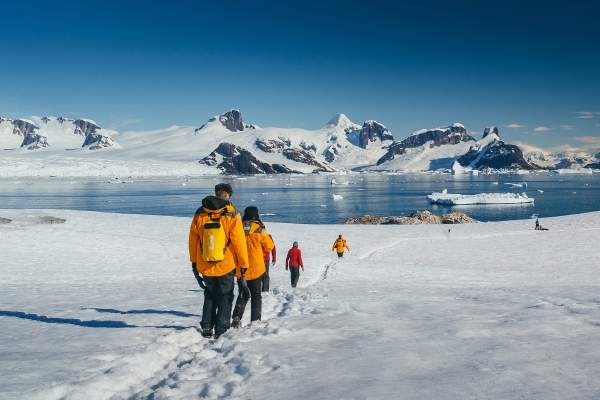Traveling to Antarctica, one of the most remote and challenging environments on Earth, offers a unique opportunity for adventure and exploration. However, it also comes with its own set of medical considerations, especially for those who plan to work on the continent for extended periods. While the average traveler may not need to worry about serious medical issues, those who live and work in Antarctica, particularly during the harsh winter months, must take precautions to ensure their health and safety.
The Importance of Medical Preparedness
Medical emergencies can arise unexpectedly, and certain conditions can be particularly problematic in such an isolated environment. A common concern is appendicitis, along with complications related to wisdom teeth, such as infections. These conditions can pose significant risks for personnel stationed at Antarctic research bases, where medical evacuation may not be feasible.
The Case of Leonid Rogozov: A Harrowing Tale
To understand the importance of medical preparedness in Antarctica, one need look no further than the story of Leonid Rogozov, a Russian doctor stationed at Novolazarevskaya Station in Queen Maud Land during the winter of 1961. Rogozov found himself in the unimaginable position of having to perform an appendectomy on himself when he became the only medical professional on-site and developed appendicitis. His gripping account of this self-surgery is a stark reminder of the extreme circumstances faced by those stationed in Antarctica.
While Rogozov’s story is extraordinary, it is not something any country would want its medical personnel to endure while working in research stations. The potential for such emergencies highlights the necessity of thorough medical screenings and, in some cases, preemptive surgeries for those who will be working in this challenging environment.
Pre-Deployment Medical Requirements
Before heading to Antarctica, individuals are subjected to rigorous medical examinations. These screenings aim to minimize the risk of medical issues arising during their stay. The nature and extent of these examinations often depend on the length of time the individual will spend on the continent.
Summer vs. Winter Deployment
For those working in Antarctica during the austral summer, when conditions are milder and transportation options are more accessible, medical screenings may be less stringent. However, those who plan to spend the winter months on the continent face more stringent health requirements. The difficulty of attempting a medical evacuation during the dark, stormy Antarctic winter necessitates that personnel be in good health and free from conditions that could lead to emergencies.
The harsh Antarctic environment, with its extreme cold, isolation, and limited medical facilities, means that even minor medical issues can escalate quickly. Thus, pre-deployment evaluations are critical in ensuring that personnel can safely withstand the rigors of life on the continent.
The Appendectomy Requirement
Among the various medical precautions, the requirement for an appendectomy is particularly noteworthy. Some countries, such as Australia, mandate that their medical personnel undergo an appendectomy before being assigned to research bases in Antarctica. This is primarily due to the presence of only one doctor at many of these bases during the winter. A ruptured appendix could lead to life-threatening complications, and evacuation in such a scenario is often impossible.
In addition to Australian requirements, some workers and their families living for extended periods in places like Villa Las Estrellas, a Chilean settlement on King George Island, may also be required to have their appendixes removed. These policies reflect a commitment to minimizing the risks associated with potential medical emergencies in an unforgiving environment.
Wisdom Teeth and Other Dental Concerns
Alongside appendectomies, the management of wisdom teeth is another medical consideration for those traveling to Antarctica. Complications arising from wisdom teeth, such as pericoronitis (inflammation and infection of the gum tissue surrounding the tooth), can lead to significant discomfort and health risks. Given the potential for such complications, some Antarctic programs also recommend that individuals have their wisdom teeth removed before deployment.
Like appendicitis, dental issues can result in pain and require medical intervention that may not be available in remote Antarctic research stations. Preemptive measures are taken to ensure that personnel can focus on their work rather than dealing with sudden medical crises.
Traveling to Antarctica: Do You Need Surgeries?
For travelers visiting Antarctica as tourists, the medical requirements are far less strict compared to those for individuals working on the continent. Tourists are not usually required to undergo the same rigorous medical screenings or surgeries as research personnel. While it’s always advisable to consult a medical professional before embarking on any adventure, having an intact appendix and wisdom teeth is not typically a barrier to visiting the region.
Travelers to Antarctica often embark on cruises or guided tours during the austral summer, when conditions are more favorable, and access to medical facilities is better. Tour operators typically require travelers to have adequate travel insurance that includes coverage for medical emergencies, which can help alleviate concerns about potential health issues during the trip.
The Role of Onboard Medical Staff
Despite the challenges posed by the Antarctic environment, the tourism industry in the region has developed robust safety protocols. Most cruise ships and expedition vessels have onboard medical staff who are trained to handle common illnesses and injuries. This presence provides peace of mind for travelers, knowing that assistance is readily available in the event of an emergency.
While tourists may not face the same level of medical scrutiny as those working in Antarctica, the precautions in place for those venturing into this extreme environment ensure that safety remains a top priority. Activities like hiking, kayaking, and wildlife watching can be enjoyed with a high degree of safety, as operators work diligently to mitigate risks.
Conclusion
Traveling to Antarctica, whether for work or leisure, necessitates careful consideration of medical issues and preparedness. For research personnel stationed in this harsh environment, rigorous medical evaluations and requirements, including appendectomies and wisdom tooth extractions, play a critical role in ensuring health and safety.
In contrast, tourists enjoy a more lenient approach to medical requirements, though the importance of travel insurance and access to medical staff cannot be overstated. The rugged beauty and unique experiences offered by Antarctica attract many adventurers, but it’s essential to prioritize health and safety in the planning stages.
As the story of Leonid Rogozov reminds us, medical emergencies can happen when least expected. By taking the necessary precautions and understanding the medical landscape of Antarctica, travelers can better prepare for their journeys to this magnificent and remote part of the world. Whether you’re a researcher braving the cold or a tourist seeking adventure, ensuring your health and safety will enhance your Antarctic experience, allowing you to focus on the incredible landscapes and wildlife that await you on the frozen continent.



